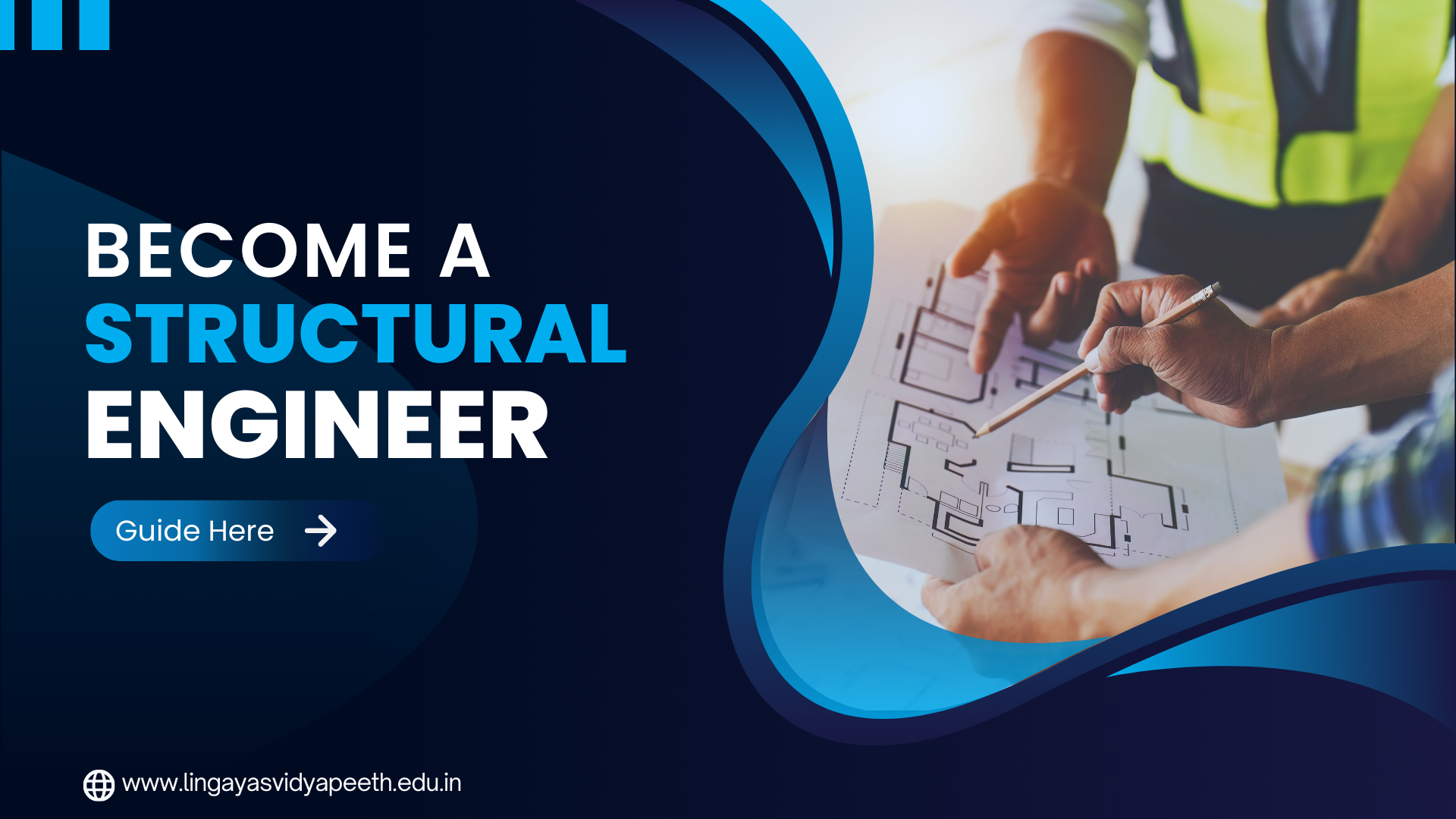Home » How to Become a Structural Engineer in India? A Step-by-Step Guide

Structural engineering is a tough yet rewarding field that consists of designing and analyzing structures such as buildings, bridges, and tunnels. If you’re interested in the mechanics of structures and want to contribute to shaping the built environment in India, becoming a structural engineer is an amazing career path.
Civil Engineers Improve Their Project Management Skills
Conclusion:
Becoming a structural engineer in India requires a combination of academic excellence, practical experience, and professional development. By following the steps outlined in this guide, you can build a successful career in this challenging and rewarding field. Remember to stay passionate, curious, and dedicated to your professional growth.
Choose Lingaya’s Vidyapeeth which is a top engineering colleges in Delhi NCR for pursuing BTech in civil engineering for an exceptional academic experience. Get benefitted from industry-relevant curriculum, modern facilities, and experienced faculty. With our focus on research, practical skills, and industry ties, you’ll be well-prepared to succeed in the fast-paced field of civil engineering.
From
Ms. Divya Negi
Assistant Professor
Department of Civil Engineering
Lingaya’s Vidyapeeth
Best Civil Engineering College in Delhi NCR
RECENT POSTS
CATEGORIES
TAGS
Agriculture Agriculture future AI Architecture artificial intelligence BA English BA Psychology BTech CSE BTech Engineering Business management career Career-Specific Education career guide Career Opportunities career option career scope Civil engineering commerce and management Computer Science Computer science engineering Data science degree education Engineering Engineering students English Literature english program Exam tips Fashion Design Fashion design course Higher Education Journalism journalism and mass communication law Law career Machine Learning MA Psychology Master degree mathematics MBA Mechanical Engineering Pharmacy Psychology Research and Development students
University Address: Nachauli, Jasana Road, Faridabad, Haryana
Toll Free: 1800-120-4613
Mobile : 8447744303 | 8447744304 | 8447744306 | 8447744309
Address: C-72, Second Floor, Shivalik, Near Malviya Nagar,
Above HDFC Bank, New Delhi 110017
Ph.No. - 011-46570515 / 45138169 / 41755703 / +91-7303152412
Jagmani Kutir, Ground Floor, Road No-1, Rajeev Nagar,
Near Darbar Marriage Hall, Patna-800024, Bihar
Contact No: 9818352069/8130120095
Mail: [email protected]
Copyrights © 1998 - 2025 Lingaya's Vidyapeeth (Deemed To Be University). All rights reserved.
It is important to note that the following email IDs and domains are fraudulent and do not belong to our university.
LV only conducts physical/online verification of any document related to examination on the following email id: